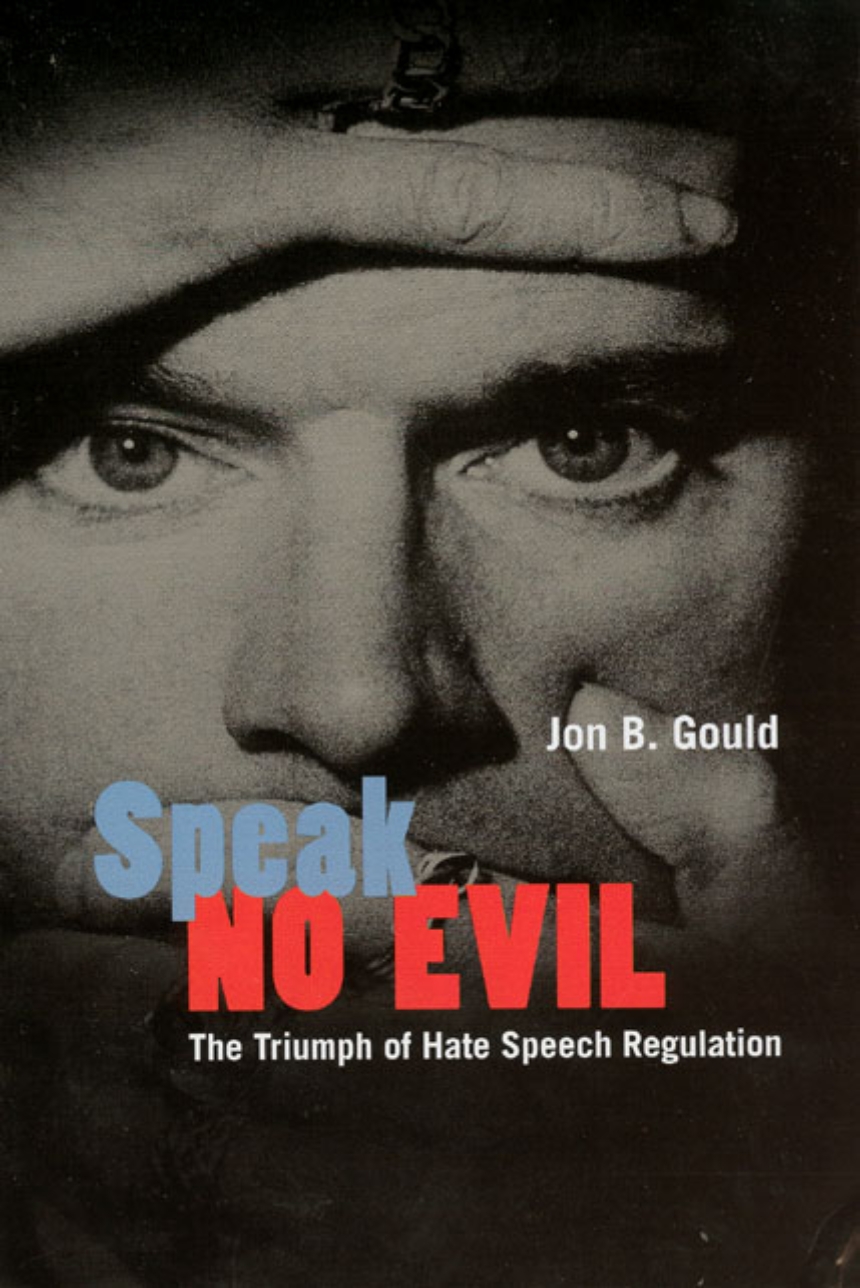Speak No Evil
The Triumph of Hate Speech Regulation
Opponents of speech codes often argue that liberal academics use the codes to advance an agenda of political correctness. But Jon B. Gould’s provocative book, based on an enormous amount of empirical evidence, reveals that the real reasons for their growth are to be found in the pragmatic, almost utilitarian, considerations of college administrators. Instituting hate speech policy, he shows, was often a symbolic response taken by university leaders to reassure campus constituencies of their commitment against intolerance. In an academic version of "keeping up with the Joneses," some schools created hate speech codes to remain within what they saw as the mainstream of higher education. Only a relatively small number of colleges crafted codes out of deep commitment to their merits.
Although college speech codes have been overturned by the courts, Speak No Evil argues that their rise has still had a profound influence on curtailing speech in other institutions such as the media and has also shaped mass opinion and common understandings of constitutional norms. Ultimately, Gould contends, this kind of informal law can have just as much power as the Constitution.
Although college speech codes have been overturned by the courts, Speak No Evil argues that their rise has still had a profound influence on curtailing speech in other institutions such as the media and has also shaped mass opinion and common understandings of constitutional norms. Ultimately, Gould contends, this kind of informal law can have just as much power as the Constitution.
224 pages | 1 line drawing, 12 tables | 6 x 9 | © 2005
Education: Education--Economics, Law, Politics
Law and Legal Studies: Law and Society
